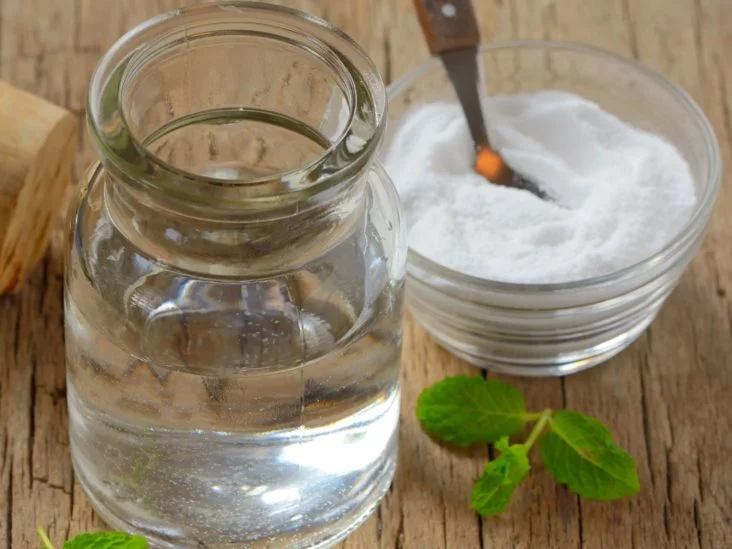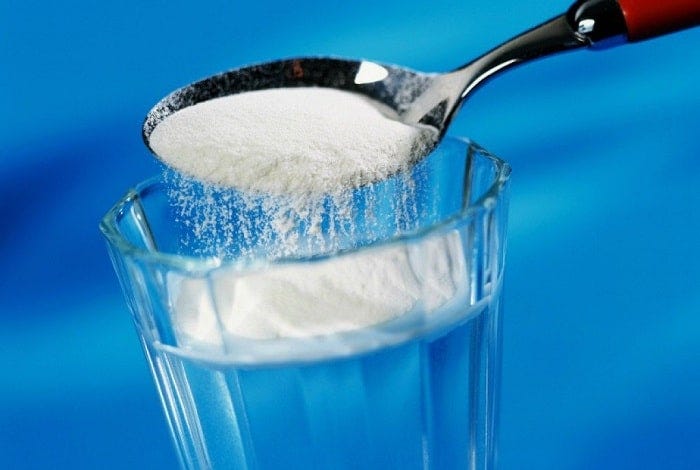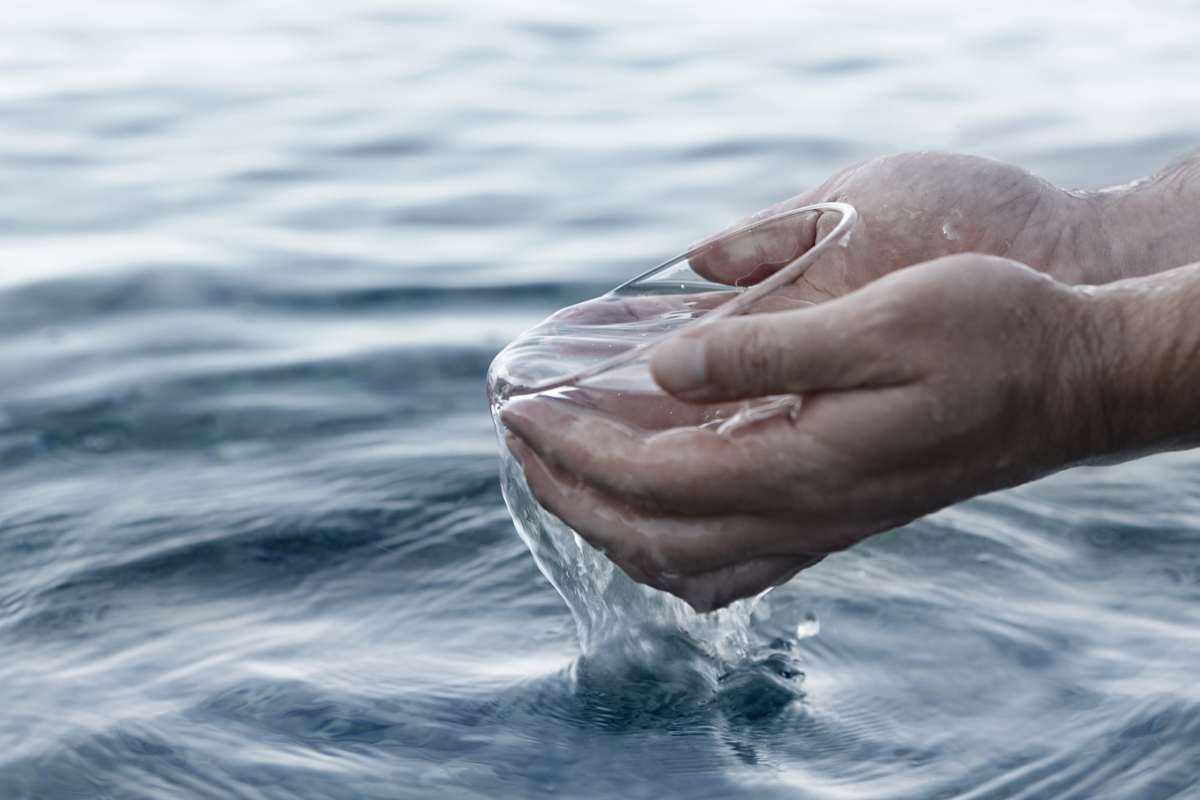As I sat by the serene shoreline, gazing at the vast expanse of salt water stretching out before me, a curious thought crossed my mind: “Does salt water make you vomit?” The question lingered, and I couldn’t help but wonder about the effects of ingesting this briny liquid.
Yes, Drinking saltwater on an empty stomach can make you feel nauseous and lead to vomiting. It may also cause cramps, bloating, and dehydration. Colon cleansing like this can disrupt your body’s sodium and fluid balance, which can be harmful.
In this journey of curiosity and discovery, I decided to delve into the science and myths surrounding the consumption of it and its potential impact on our stomachs.
Considerations and Potential Health Risks Associated with Saltwater Flushes

- You may experience muscle spasms as a result of the flush.
- A feeling of weakness can be a side effect.
- Mental confusion may occur due to the physiological impact of the flush.
- The flush can lead to irregularities in heart rhythm.
- In severe cases, seizures may be triggered.
- Blood pressure fluctuations, including elevated levels, can be a concern.
Although many individuals do experience bowel movements following a saltwater flush, it’s essential to acknowledge that not everyone does. Moreover, this practice carries the risk of sodium overload, which in turn may contribute to high blood pressure. Therefore, it is strongly advised against undergoing a saltwater flush if you have any of the following conditions:
- Heart Problems: Individuals with pre-existing heart conditions should avoid this procedure.
- Diabetes: People with diabetes are cautioned against attempting a saltwater flush.
- Edema: If you suffer from edema, a saltwater flush is not recommended.
- Kidney Problems: Those with kidney issues should steer clear of this method.
- High Blood Pressure: patients should avoid saltwater flushes due to their potential to exacerbate this condition.
- Gastrointestinal Issues: Individuals dealing with gastrointestinal problems like ulcers or inflammatory bowel disease should avoid this practice.
The impact of a saltwater flush on your microbiome, the complex community of microorganisms residing in your gut, remains uncertain. Scientific evidence neither supports nor refutes the idea that a saltwater flush has any significant influence, positive or negative, on your microbiome. In theory, it could disrupt the delicate balance of your gut bacteria.
According to research published in Microbial Ecology in Health and Disease, an unhealthy microbiome can potentially increase the risk of various intestinal disorders.
In addition, If you opt for a saltwater flush, it’s advisable to consider taking a probiotic supplement for several days afterward. This proactive step may assist in maintaining the equilibrium of your microbiome, promoting digestive health.
Safe and Effective Alternatives to Saltwater Flush for Colon Health and Detoxification
There are indeed alternatives to the practice of a saltwater flush, such as juice fasts, detox teas, and laxative pills. These methods may induce urgent bowel movements, but it’s crucial to emphasize that there is a glaring lack of scientific evidence supporting their efficacy in removing toxins or providing long-term relief from constipation. In fact, for some individuals, these alternatives can be potentially hazardous.
To truly promote colon health and facilitate the detoxification process within your body, the most effective approach is to bolster the natural detoxifying powerhouses, your liver and kidneys. These vital organs work tirelessly to filter toxins from your bloodstream, enabling your body to expel them through your bowels or urine.
Here’s how you can show your liver and kidneys some well-deserved care:
Hydration: Ensure you’re adequately hydrated by drinking plenty of water, as this supports the efficient functioning of your kidneys in flushing out toxins.
Medications: If prescribed medications or over-the-counter drugs are part of your health regimen, always follow your healthcare provider’s instructions meticulously.
Nutrient-rich Diet: Consume a balanced and nutritious diet, rich in vitamins, minerals, and antioxidants, which can aid in supporting your body’s natural detox processes.
Moderate Alcohol: Limit alcohol consumption to reduce the strain on your liver and overall health.
Reduced Toxin Exposure: Minimize your exposure to toxic substances found in cleaning products, pesticides, insecticides, and personal care items to reduce the burden on your detoxification organs.
Quit Smoking: Smoking not only endangers your overall health but also places additional stress on your liver and kidneys.
Maintain Healthy Weight: Strive to maintain a healthy body weight, as excessive weight can negatively impact your liver function.
Blood Pressure Management: Keep a close watch on your blood pressure and manage it effectively to safeguard your cardiovascular health.
Regular Exercise: Incorporate regular physical activity into your lifestyle, as exercise can enhance circulation, promote organ health, and support detoxification.
Moreover, increasing your intake of both soluble and insoluble fiber is a valuable step to ensure your bowels operate smoothly. While the benefits of fiber may not yield instant results akin to a saltwater flush, they contribute significantly to the ongoing management of chronic constipation.
Why Drinking Concentrated Saltwater Can Lead to Vomiting?

When you drink a lot of salt dissolved in water, it means there’s more salt and less water in your stomach. This concentrated mixture moves from your stomach to your intestine.
In your intestine, the concentration of salt is lower, and there’s more water. Water naturally moves from where there’s more of it to where there’s less, a process called osmosis. In this case, water moves out of your intestine and into the concentrated salt solution.
As water leaves the intestine, it makes the intestine fill up with even more water. This makes your intestines stretch and become uncomfortable.
Your body senses this discomfort and sends signals to your brain. Your brain interprets these signals as a potential problem and decides to make you vomit to get rid of the excess saltwater.
So, in simple terms, your body makes you vomit when you drink concentrated saltwater to prevent you from absorbing too much salt, which could lead to dehydration and other problems.
FAQs
Can drinking saltwater or seawater make you sick or even kill you?
Yes,Drinking small amounts of salt or seawater won’t kill you, but large quantities can make you sick, causing nausea, vomiting, and potentially leading to dehydration, which, if untreated, can be fatal. Even a small sip of seawater can induce sickness.
How much seawater can I safely drink?
Doctors do not recommend drinking seawater at all. Even a single sip can make you sick and bring you closer to dehydration. In a survival situation, drinking seawater is not a safe option, as it can worsen your condition.
What are the side effects of consuming salt or seawater?
Side effects of consuming too much saltwater or seawater can include dehydration, increased blood pressure, loss of calcium, nausea, weakness, delirium, and in extreme cases, organ failure and death if dehydration is severe.
Can drinking saltwater cause vomiting?
Yes, drinking saltwater can cause vomiting. It was historically used as a way to induce vomiting after poisoning, but this practice is dangerous and potentially fatal.
Does drinking saltwater or seawater make you go crazy?
Drinking too much saltwater or seawater can lead to dehydration and eventually cause delirium, which is characterized by confusion and hallucinations. So, yes, excessive consumption can have psychological effects.
How much saltwater or seawater is safe to drink?
Doctors do not recommend drinking saltwater or seawater. If you must, it’s crucial to purify it through filtering, boiling, or evaporation before consumption. Drinking uncontaminated freshwater is always the best choice.
What symptoms can occur with saltwater poisoning?
Symptoms of saltwater poisoning can include cramps, nausea, vomiting, dizziness, confusion, fainting, unconsciousness, and, in severe cases, cardiac arrest or death.
What should you do if you’ve drunk saltwater or seawater?
If you accidentally consume saltwater or seawater, immediately start drinking fresh water and avoid further consumption of saltwater. If you experience symptoms of dehydration or saltwater poisoning, seek medical assistance promptly.
Is the saltwater flush or saltwater cleanse a good idea?
No, The saltwater flush, which involves drinking warm water and salt, is not recommended due to its potential side effects, including dehydration, increased blood pressure, calcium loss, nausea, and delirium. It should be avoided if you have specific health conditions like heart problems, diabetes, kidney issues, high blood pressure, or gastrointestinal problems.
Is salt water bad for your stomach?
Yes, saltwater can be bad for your stomach if consumed in large quantities. It can irritate the stomach lining, cause discomfort, and lead to vomiting and potential dehydration.
Final Words
In conclusion, I’ve learned that drinking saltwater can indeed make you vomit. This is because saltwater irritates the stomach lining, causing discomfort and triggering a protective response.
Further, the body wants to prevent excessive salt absorption, which could lead to dehydration and other health issues. So, it’s clear that our bodies have a smart way of safeguarding our well-being by making us expel that salty solution when needed.

